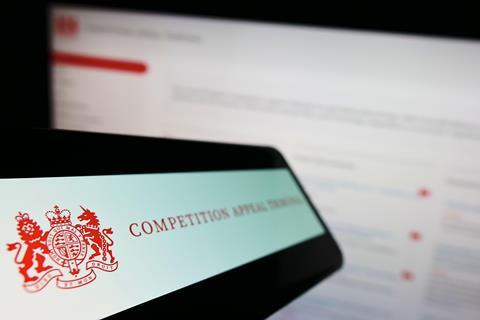Judges in the Competition Appeal Tribunal have taken a scythe to costs claims where solicitors were charging as much as 70% above the guideline hourly rate in a high profile group action.
The tribunal, chaired by Mr Justice Roth, said costs on both sides in a preliminary hearing in Merricks v Mastercard Incorporated and Others were ‘unreasonable and disproportionate’ for issues of legal argument which lasted less than four days. The claimant representative asked to recover around £470,000 from Mastercard for the three issues on which it was successful, while the defendant sought costs of £109,000 for the sole issue it succeeded on.
The tribunal said the ‘enormous size’ of the costs claimed was largely down to the hourly rates charged by the solicitors on both sides. Freshfields, for Mastercard, charged £870 an hour for Grade A fee earners and £478 for Grades B and C. The litigant stated that the fees were ‘consistent with market rates for specialist and experienced competition solicitors engaged to conduct high value and complex litigation’.

Wilkie Farr & Gallagher, for the claimant representative, charged up to £825 an hour for the Grade A fee earner and £450 an hour for the next rung down. Merricks said the issues addressed in the hearing ‘were of such complexity and required such specialist knowledge’ that these rates were to be expected.
The tribunal accepted that guideline rates were indeed just a guide and that increased fees were justified for substantial and complex litigation. ‘However, we do not consider that these considerations can begin to justify rates which are, for Mastercard Grades A and C solicitors some 70% over the guideline rates, and for the CR Grades A and C solicitors in excess of 60% over the guideline rates,’ said the judges. 'Taking a broad brush approach, we think that some 30% over the guideline is reasonable (producing rates for Grade A of £665.60 and Grade C of £351).'
The judges added that both sides sent two partners to much of the hearing but only one was necessary, the fee of more than £11,000 for counsel advice on certain issues was too high, and the £24,000 total claimed for trial preparation was ‘wholly disproportionate’.
The tribunal ruled that Mastercard’s recoverable costs from its successful issue should be £83,000, while the company should pay Merricks’ costs of £369,000 for the issues he won. The awards were set off against each other.



























10 Readers' comments